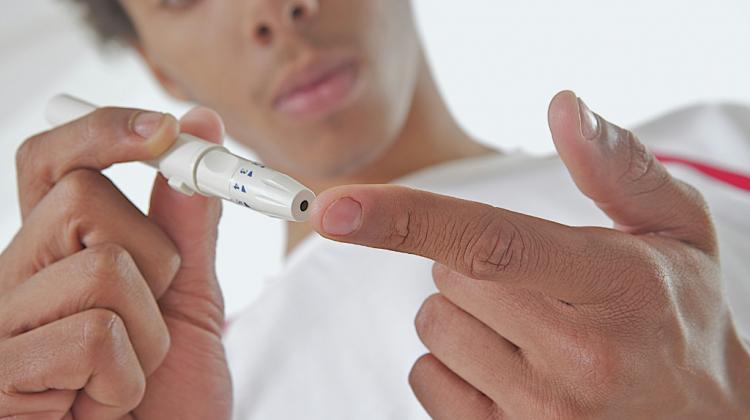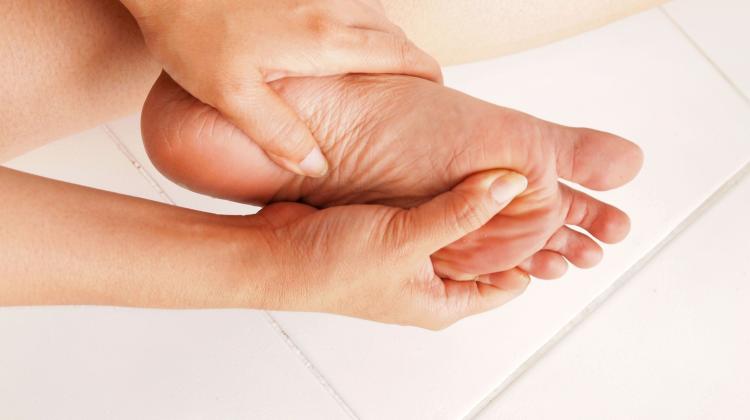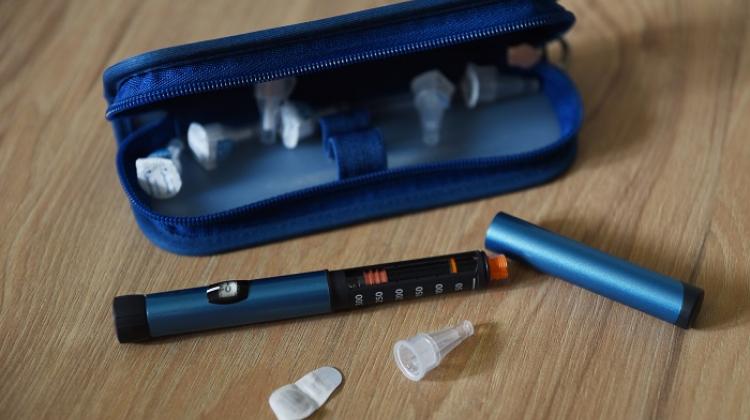Wrocław/ Wrocław University of Science and Technology graduates are working on a device for non-invasive blood glucose testing
 Photo: Fotolia
Photo: Fotolia
Wrocław University of Science and Technology graduates are working on a device for measuring the level of glucose in blood with light. It is primarily intended to help diabetics, but also people on the diet and sportsmen.
According to Michał Ciepielski from the press office of the Wrocław University of Science and Technology, the device is being developed by the startup GlucoActive founded by Wrocław University of Science and Technology graduates. The device in the shape of a watch is intended to be convenient and easy to use. The measurement will be carried out with optical and spectrophotometric methods.
Co-founder of the startup and a Wrocław University of Technology graduate Maciej Wysocki points out that, according to official information, about 10 percent people suffer from diabetes, but only every third person develops symptoms of the disease. "In many people, the disease is still undiagnosed, because it can develop asymptomatically for the first few years" - he says.
He adds that currently patients with diabetes can control blood glucose levels themselves, for example with a glucometer that requires a blood sample (for example from the fingertip), or a special sensor with a microneedle, placed in the subcutaneous tissue through insertion. "For many people, making the necessary puncture in public is embarrassing, and libra is too expensive. We also noticed that replacing the lancet is a problem. It must be done often, and sometimes there is no time or conditions for that, and using one needle for a longer time can lead to various types of infections" - points out Jakub Niemczuk, technical director at GlucoActive.
Wysocki admits that the idea to create a non-invasive method for glucose monitoring is not new; in recent years, private companies such as Apple and Google, pharmaceutical companies and scientific consortia have worked on such projects. However - he adds - solutions proposed so far, for example tattoos, implants or special lenses, proved to be extremely difficult or expensive to implement and as a result research was abandoned.
The constructors explain that their method is based on illuminating the skin with light of a specific wavelength several times, and then analysing the obtained results.
"We analyse, for example, to what extent light has been dispersed, absorbed by the skin, and how its spectrum has changed. It may seem simple, but the secret lies in the mathematical analysis of these measurements. The biggest problem for us was the fact that, colloquially speaking, every human it is a +mixture+ of many compounds that strongly scatter light and return a lot of different signals. We had to create solutions to extract only the glucose information from the obtained data" - explains Niemczuk.
The team conducted the first research in the laboratories of the Wrocław University of Science and Technology with the use of professional, large spectrometers. "Now small spectrometers are available and used, for example, by the police to detect drugs and explosives. But our device must be even smaller and much more precise" - team members emphasise.
"At present, when we are testing blood and skin samples, we have achieved accuracy at the level of popular glucose strip tests with approx. 15% error margin. We continue in our efforts to make the results more precise. It should also be emphasized that illuminating is completely safe, it does not affect the skin and other tissues" - Wysocki adds.
The researchers emphasize that initially the watch will only show glucose level. Ultimately, it is supposed to work like a smartwatch with a dedicated application. The watch can also be programmed to automatically measure the glucose level at specific intervals. The founder of the startup adds that it is also possible that in the future options will be introduced to check the level of cholesterol, haemoglobin or hydration of the body.
At the end of this year, the constructors want to conduct official medical experiments to confirm the results of their research. The device is expected to be marketed as a sport gadget in the middle of 2020, and its cost will be approx. PLN 2 thousand. Then, the creators will also try to obtain medical certification.
The constructors are also working on a larger stationary glucose meter intended for pharmacies. Eleven people currently work on the project; work is carried out also as part of the National Centre for Research and Development grant "BRIdge Alfa".
PAP - Science in Poland, Agata Tomczyńska
ato/ zan/ kap/
tr. RL
Przed dodaniem komentarza prosimy o zapoznanie z Regulaminem forum serwisu Nauka w Polsce.


















